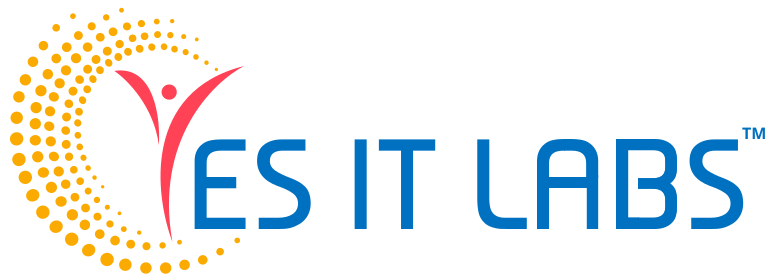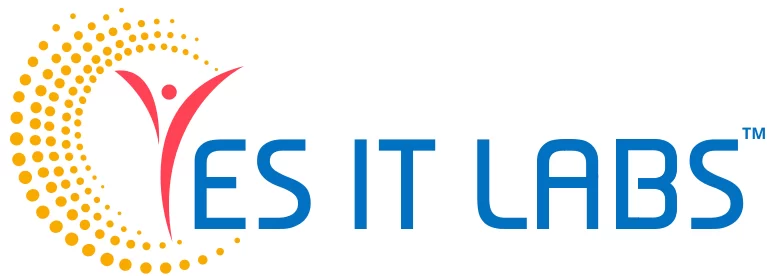Hey there, fellow tech enthusiasts! Are you prepared to immerse yourself in the dynamic realm of mobile app development? Whether you’re an experienced developer or just dipping your toes into the coding waters, choosing the right programming language for mobile app development is crucial. With technology evolving at a breakneck pace, it’s essential to stay up-to-date with the latest trends and tools in the industry.
In this blog post, we’ll take a closer look at the top six programming languages for mobile app development in 2024. From the ever-popular to the up-and-coming, we’ll explore the pros and cons of each language to help you make an informed decision for your next mobile project.
Swift
Let’s kick things off with Swift, Apple’s very own programming language for iOS, macOS, watchOS, and tvOS app development. Swift has rapidly garnered favor among developers due to its speed, security, and contemporary syntax. With Apple’s unwavering support and regular updates, Swift continues to be a top choice for building high-performance iOS apps.
One of the key advantages of Swift is its seamless integration with Apple’s development tools like Xcode and SwiftUI. This tight integration streamlines the app development process and allows developers to create stunning user interfaces with ease. Additionally, Swift’s strong type inference system helps catch errors at compile-time, reducing the likelihood of bugs and enhancing code reliability.
However, it’s worth noting that Swift is exclusive to the Apple ecosystem, limiting its use to iOS and macOS app development. If you’re targeting multiple platforms, you may need to consider alternative languages or frameworks.
Kotlin
Next up, we have Kotlin, a modern programming language for building Android apps. Developed by JetBrains, Kotlin offers a concise syntax, seamless interoperability with Java, and robust tooling support. Since Google announced Kotlin as an official language for Android development in 2017, its adoption has skyrocketed, with many developers praising its expressiveness and safety features.
One of Kotlin’s standout features is its null safety, which helps prevent null pointer exceptions—a common headache in Java development. With Kotlin’s nullable and non-nullable types, developers can write more reliable code and catch potential issues early in the development process. Moreover, Kotlin’s support for functional programming paradigms allows for cleaner, more concise code, boosting developer productivity.
Like Swift, Kotlin is platform-specific, focusing solely on Android app development. However, its seamless interoperability with Java makes it easy to integrate Kotlin code into existing Android projects, making the transition smooth for developers familiar with Java.
Flutter (Dart)
Let’s shift our focus to Flutter, Google’s UI toolkit designed for crafting natively compiled applications for mobile, web, and desktop all from a unified codebase. Fueled by the Dart programming language, Flutter has garnered notable attention within the mobile app development sphere for its rapid development cycles, intuitive UI, and hot reload capability.
One of the main selling points of Flutter is its ability to create visually stunning and highly customized user interfaces, thanks to its rich set of customizable widgets. With Flutter, developers can achieve pixel-perfect designs across multiple platforms, eliminating the need for separate UI codebases. Furthermore, Flutter’s hot reload functionality facilitates swift iteration and experimentation, thereby cutting down development time and enhancing productivity.
Despite its relative youth compared to established frameworks like Swift and Kotlin, Flutter has garnered a loyal following within the developer community. Its cross-platform capabilities make it an attractive option for businesses looking to reach a broader audience without compromising on user experience.
React Native (JavaScript)
If you’re a fan of JavaScript, React Native might be right up your alley. Developed by Facebook, React Native is a popular open-source framework for building native mobile apps using JavaScript and React. With React Native, developers can leverage their existing JavaScript skills to create dynamic, cross-platform mobile applications with a native look and feel.
One of the key advantages of React Native is its extensive ecosystem of third-party libraries and tools, allowing developers to add advanced features and functionality to their apps with ease. Additionally, React Native’s component-based architecture promotes code reusability and modularity, making it ideal for large-scale projects with complex UI requirements.
However, like any framework, React Native has its limitations. While it offers excellent performance for most applications, certain tasks may require native code integration for optimal performance. Additionally, React Native’s reliance on JavaScript can lead to performance bottlenecks in CPU-intensive applications, so it’s essential to weigh the trade-offs carefully before diving in.
Python (Kivy / BeeWare)
Python, known for its simplicity and readability, has also found its way into the realm of mobile app development. While not as prevalent as Swift or Kotlin, Python offers several frameworks and tools for building mobile applications, including Kivy and BeeWare.
Kivy, an open-source Python framework, allows developers to create cross-platform applications with a natural user interface. With Kivy, developers can write once and deploy across multiple platforms, including iOS, Android, Windows, macOS, and Linux. Despite its relatively small community compared to other frameworks, Kivy continues to evolve, with regular updates and improvements.
On the other hand, BeeWare takes a slightly different approach to mobile app development with Python. Instead of relying on cross-platform frameworks, BeeWare provides a set of tools for building native applications using Python. With projects like Toga for GUI applications and Briefcase for packaging and distribution, BeeWare aims to make Python a first-class citizen in the world of mobile development.
Java
Last but certainly not least, we have Java, the tried-and-true programming language for Android app development. Despite the rise of Kotlin, Java remains a popular choice among developers for its maturity, performance, and extensive ecosystem of libraries and tools.
While Kotlin offers many modern features and improvements over Java, Java’s long-standing presence in the Android ecosystem means there’s still a vast amount of legacy code written in Java. For developers working on existing projects or collaborating with teams familiar with Java, sticking with Java may be the most practical choice.
Is C++ used for mobile app development?
You might be surprised to learn that C++, a powerful and versatile programming language, does indeed have a role to play in mobile app development. While it’s not typically the primary language for building mobile apps from scratch, C++ often finds its way into mobile development projects for performance-critical tasks, such as game engines, audio processing, and graphics rendering. Many popular game development frameworks, like Unity and Unreal Engine, leverage C++ under the hood to deliver high-performance gaming experiences on mobile devices. So, while you may not write entire mobile apps in C++, it certainly has its place in the mobile development landscape.
Which is best for mobile app development?
Ah, the age-old question: which programming language reigns supreme for mobile app development? The truth is, there’s no one-size-fits-all answer. The best language for mobile app development depends on various factors, including the platform you’re targeting, your team’s expertise, project requirements, and personal preferences. Swift and Kotlin are excellent choices for native iOS and Android development, respectively, offering seamless integration with platform-specific tools and robust support from Apple and Google. Flutter and React Native are popular cross-platform frameworks that allow you to write code once and deploy it across multiple platforms, saving time and effort. Ultimately, the best language for mobile app development is the one that helps you achieve your project goals efficiently and effectively.
Is Python a good language for mobile apps?
Python, beloved for its simplicity and readability, has certainly made strides in the realm of mobile app development. While it may not be as prevalent as Swift or Kotlin, Python offers several frameworks and tools for building mobile applications, including Kivy and BeeWare. Kivy, an open-source Python framework, enables developers to create cross-platform applications with a natural user interface, while BeeWare provides a set of tools for building native applications using Python. While Python may not be the go-to choice for every mobile development project, its versatility and ease of use make it a compelling option for certain use cases.
Conclusion
The world of mobile app development is vast and ever-evolving, with a plethora of programming languages and frameworks to choose from. Whether you’re building for iOS, Android, or both, selecting the right language for your project depends on various factors, including your team’s expertise, project requirements, and target audience.
From the sleek and streamlined Swift to the versatile and dynamic Flutter, each programming language brings its unique strengths and capabilities to the table. By staying informed about the latest trends and tools in the industry, you can navigate the ever-changing landscape of mobile app development company with confidence and creativity. So, roll up your sleeves, sharpen your coding skills, and embark on your next mobile app adventure—your users are waiting!






